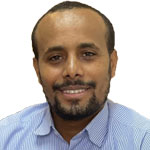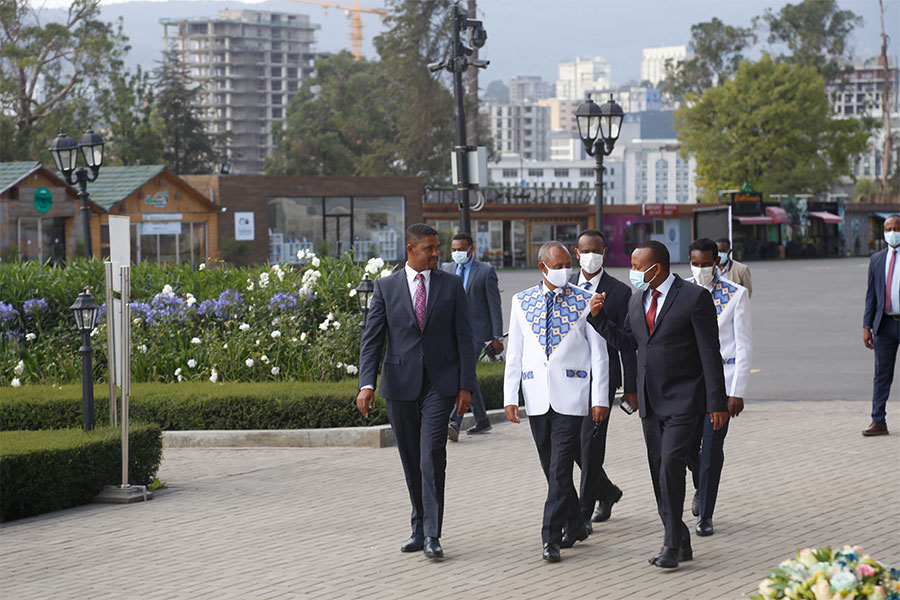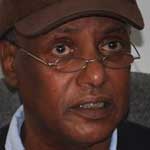
Commentaries | Oct 02,2021
Feb 5 , 2022
By Tilahun Adamu Zewudie
Africa's problems cannot be resolved through Western or any other non-African prescriptions. African leaders should translate the longstanding principle of African solutions for African problems into actual practice. The AU holding the 35th Ordinary Summit in Ethiopia is in this spirit of pan-Africanism, writes Tilahun Adamu Zewudie, counsellor at the Ministry of Foreign Affairs, previously serving in different diplomatic capacities. The views expressed and suggestions submitted in the article are solely the author's and are not in any way attributed to or endorsed by his employer or any other entity.
It has been two decades since the African Union (AU) was launched as a successor to the Organisation of African Unity (OAU), the prime institutional manifestation of the ideals of pan-Africanism. Since then, the AU has held several regular and extraordinary summits, including three coordination meetings. The assembly of heads of state and government, the highest policymaking body of the Organisation, will hold its 35th summit at its headquarters in Addis Abeba, this week.
The assembly is expected to focus on “key strategic policy issues” such as peace and security, integration and governance as the other less strategic issues have been delegated to the Executive Council, a body composed of African foreign ministers. However, the Summit is to be held at a time when several African countries are experiencing increased armed conflicts and external interventions, particularly from the West.
The recurrence of coups and armed conflicts along lingo-cultural faultlines are the most important issues of the time in many countries. In less than a year, Guinea, Mali, Chad, Sudan, and Burkina Faso have encountered military seizure of power by their respective national armies. It caused the AU to be seized of the matters and pronounce itself through its appropriate organs.
The AU has acted, but things have shown modest improvement. Its major response has been the immediate suspension of the states from the organisation’s activities until constitutional order is restored, except in the case of Chad, where it agreed to send a fact-finding mission. The latest incident was the coup in Burkina Faso, which triggered the latter’s suspension from participating “in all AU activities” just three days prior to the summit this week. But while the suspension of the states concerned is a necessary measure, it is, apparently, not sufficient to address the problems.
The AU should make additional concrete measures to restore constitutional order and, more importantly, to provide lasting solutions to such incidents in its member states.
A significant development that makes this year's summit unique is that Ethiopia, a host of the AU and its summits, is undergoing armed conflict in its northern part. The war started in November 2020 after the Tigray People's Liberation Front (TPLF), the dominant member of the previous repressive ruling coalition, the EPRDF, attacked the national armed forces based in the Tigray Regional State. The war has bent Ethiopia's image from a global peace promoter and exporter to a source of a war-driven humanitarian crisis and regional insecurity.
The UN Security Council has discussed Ethiopia’s situation at least 12 times, mostly under “any other business,” and several members of the international community have been expressing concerns over the security, humanitarian and human rights situation in Tigray, Amhara and Afar regional states. Tens of thousands of Ethiopians have been killed and millions are in need of urgent humanitarian support; and, the war continues.
As a host country of many international organisations and diplomatic missions, Ethiopia had been a source of concern for the diplomatic community. Just weeks ago, Western diplomatic missions and organisations expatriated their staff out of Addis Abeba, deceived by the widely orchestrated propaganda campaign that the TPLF rebels may control Addis Abeba. Many doubted the genuineness of such measures; some considered it part of their broader diplomatic campaign to pressure the government.
This was because the West has shown consistent bias in Ethiopia's yearlong conflict favouring the TPLF, a rebel group proscribed a terrorist organisation by the federalparliament, over the country's legitimate government.
But the concern was not limited to Western governments. Reports and unverified internal memos of the African Union Commission, "message to the Staff of the Commission," also indicate that some officials were lobbied to evacuate AU Staff from Addis Abeba to their respective countries. The unverified memo noted that "an understandable distress has gripped the population and the staff members of the AU, affecting the social lifestyle and professional work."
Some AU representatives also raised their concern to Ethiopian diplomats and officials in a consultative meeting. Some African and non-African diplomats and entities were also lobbying the AU either to change the venue of its summit to another country or hold it virtually.
While sensitivity to the staff's safety is understandable, the suggestion was neither based on genuine intentions and facts on the ground nor the agenda of the AU at its inception. At least at its inception, it was apparent that some Western entities coordinated this and many anti-Ethiopian government campaigns as a means to force the government to accept foreign (Western) prescriptions concerning the domestic armed conflict.
The campaign to move the summit from Addis Abebato another country has not only been undesirable but also disrespectful to Ethiopia, a staunch advocate of pan-Africanism whose well-intentioned policy towards Africa has never changed irrespective of the changes in government. The anti-Addis Abeba campaign sent a bold message that a country at war with itself cannot guarantee the peaceful conclusion of major international events.
While this seems logical on the surface, there is an evident logical fallacy and a manifest misunderstanding of the Ethiopian situation.
Ethiopia’s government has fullcontrol over the peace and stability of Addis Abeba. There has not been any incident in the capital during the year-long conflict in the northern part of the country,. Ethiopia has also in the past managed to peacefully host several AU summits and other international conferences even at times when it was undergoing a broader and more intense war than the current armed conflict in the north.
The implied assertion that an African country that is facing an armed conflict in a portion of its territory should not host an AU conference is not only indefensible in a continent where many countries experience such incidents but also inconsistent with the very object and purpose of the AU Constitutive Act. This is not to mention that the armed conflict against the TPLF is 940Km away from the capital, which is 50Km longer than the distance between Rome and Geneva. The reports that the TPLF was at some point on the outskirts of Addis Abeba has been proven to be a mere misinformation campaign that does not reflect the reality on the ground.
The conflict in northern Ethiopia could not in any way disturb the peaceful conclusion of the AU summit, and there is no legal basis or any other convincing reason to move it out of Addis Abeba. African states’ eventual decision to hold the summit here is, therefore, praiseworthy.
Prime Minister Abiy Ahmed (PhD) has reaffirmed Ethiopia’s unwavering commitment towards the objectives and principles of the AU and the idea of African solution for problems in the continent. The AU can use the Prime Minister’s words to play a more effective role to end the ongoing conflict in Ethiopia including by supporting an Ethiopian owned inclusive national dialogue.
The same way it entrusted the AU to entertain the Grand Ethiopian Renaissance Dam (GERD) dispute, which is a matter of its topmost national interest, Ethiopia should also welcome AU’s constructive role in ending the ongoing armed conflict, if positively engaged. Ethiopia can also use this opportunity not only to once again reassure its commitment to the AU’s principles, but also to benefit from its rich conflict resolution experience.
As a matter of priority, the AU should play a more assertive role to end the armed conflict in Ethiopia to restore constitutional order in the countries where there is an unconstitutional change of government, and to prevent undue foreign interference in domestic affairs of its member states. The leaders should use the summit this week to discuss these issues openly and provide a workable African solution.
Africa's problems cannot be resolved through Western or any other non-African prescriptions. Africa’s leaders should translate the longstanding principle of African solutions for African problems into actual practice. The member states should take the AU and its organs seriously and put the necessary trust and confidence on them. This can be done, for example, by entrusting the AU to entertain matters of member states’ top national interests.
They can demonstrate their commitment to the ideals of pan-Africanism by entrusting the AU to take a mediator and facilitator role in the conflicts, by inviting its appropriate organs such as the AU Peace & Security Council and the African Commission on Human & People's Rights to undertake peace and human rights investigation and promotional missions, and implementing their decisions and recommendations.
Putting trust in and empowering the AU to act authoritatively in its member states' situations can also decrease undue foreign interferences in the domestic affairs of its members. But if Africans do not do their work by themselves using their institutions, others will do it for them in their own way. While the AU should defend its members’ sovereignty including by rejecting undue interferences, it should also look inside and take bold measures to address the problems caused by African governments. It is, therefore, incumbent upon the Heads of State and Government to use their 35th Ordinary Summit to make bold and implementable decisions in the spirit of Pan-Africanism.
PUBLISHED ON
Feb 05,2022 [ VOL
22 , NO
1136]


Commentaries | Oct 02,2021

Fortune News | Oct 23,2021

Radar | Jul 13,2019

Editorial | May 13,2023

My Opinion | Jul 18,2021

Verbatim | Aug 03,2019

Fortune News | Sep 26,2021

Viewpoints | Jan 16,2021

Viewpoints | Mar 09,2024

Viewpoints | Jun 05,2021

My Opinion | 131770 Views | Aug 14,2021

My Opinion | 128154 Views | Aug 21,2021

My Opinion | 126099 Views | Sep 10,2021

My Opinion | 123721 Views | Aug 07,2021

Dec 22 , 2024 . By TIZITA SHEWAFERAW
Charged with transforming colossal state-owned enterprises into modern and competitiv...

Aug 18 , 2024 . By AKSAH ITALO
Although predictable Yonas Zerihun's job in the ride-hailing service is not immune to...

Jul 28 , 2024 . By TIZITA SHEWAFERAW
Unhabitual, perhaps too many, Samuel Gebreyohannes, 38, used to occasionally enjoy a couple of beers at breakfast. However, he recently swit...

Jul 13 , 2024 . By AKSAH ITALO
Investors who rely on tractors, trucks, and field vehicles for commuting, transporting commodities, and f...

Jul 5 , 2025
Six years ago, Ethiopia was the darling of international liberal commentators. A year...

Jun 28 , 2025
Meseret Damtie, the assertive auditor general, has never been shy about naming names...

Jun 21 , 2025
A well-worn adage says, “Budget is not destiny, but it is direction.” Examining t...

Jun 14 , 2025
Yet again, the Horn of Africa is bracing for trouble. A region already frayed by wars...

Jul 6 , 2025 . By BEZAWIT HULUAGER
The federal legislature gave Prime Minister Abiy Ahmed (PhD) what he wanted: a 1.9 tr...

Jul 6 , 2025 . By YITBAREK GETACHEW
In a city rising skyward at breakneck speed, a reckoning has arrived. Authorities in...

Jul 6 , 2025 . By NAHOM AYELE
A landmark directive from the Ministry of Finance signals a paradigm shift in the cou...

Jul 6 , 2025 . By NAHOM AYELE
Awash Bank has announced plans to establish a dedicated investment banking subsidiary...